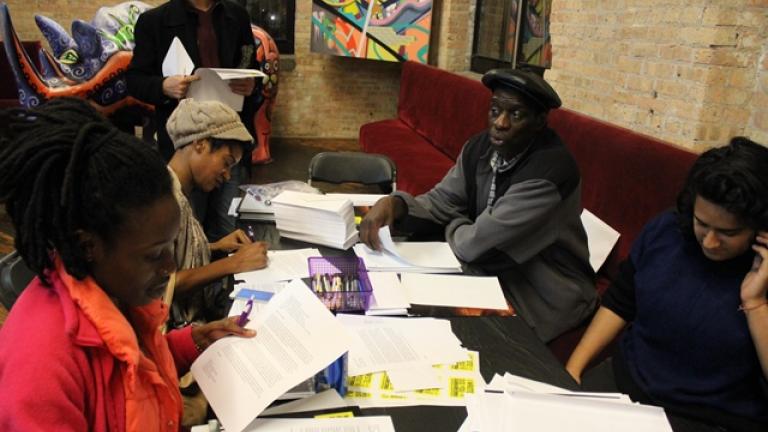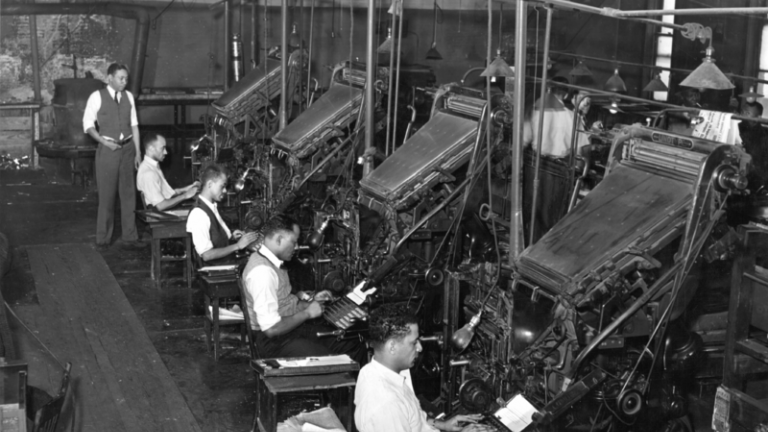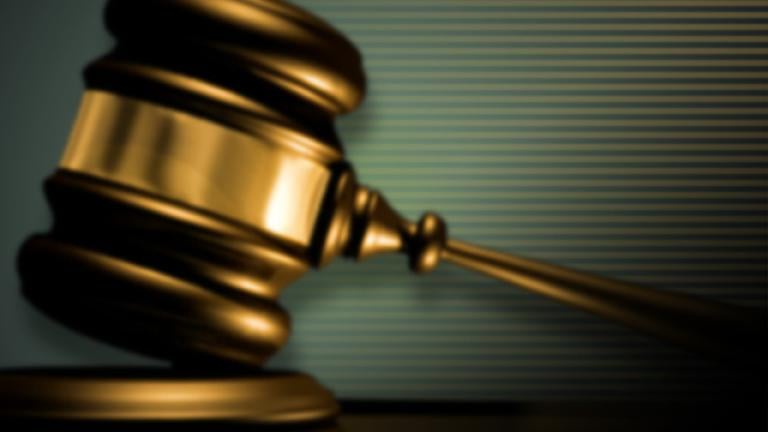In her role as President of the American Academy of Religion, Northwestern bioethicist Laurie Zoloth called on her colleagues to cancel one of their annual meetings for the sake of the environment. In her controversial speech, she said, “Every year, each participant going to the meeting uses a quantum of carbon that is more than considerable. Air travel, staying in hotels, all of this creates a way of living on the earth that is carbon intensive. It could be otherwise.” The AAR annual meeting draws nearly 10,000 people. Laurie Zoloth visits Chicago Tonight to discuss her vision behind the “sabbatical,” and more.
Read an interview with Amy Davidsen, executive director of The Climate Group’s North American branch, about the impact of climate change and 10,000 fewer people traveling to a conference each year.
American Academy of Religion President Laurie Zoloth suggested the conference take a sabbatical year every six years from hosting the conference which draws about 10,000 people. Do you think eliminating a conference every six years would have an impact on climate change? Or is it more of a statement?
Of course, traveling by plane has a significant impact on carbon emissions for one’s own footprint. I’m not sure what the impact of 10,000 people would be since I’m not sure where all these people would be coming from. It’s an important statement to make. The faith-based community has been more vocal about the need to address climate change from a moral point of view, which is extremely welcome among the climate change community. Their voice is critical for greater action in the political sphere by making sure their voices are heard… It’s a welcome statement as well as its impact. The impact of 10,000 pales in comparison to larger impacts of the way we’re treating the earth, but it’s an important statement.
What is causing climate change?
The real general part is the burning of fossil fuels which puts emissions in the atmosphere at a faster rate than the earth can naturally absorb through normal processes. We’re digging up fossil fuels—they are called that because they were created during the age of dinosaurs—and we’re burning [fossil fuels] at a faster rate than the earth can absorb. It’s oil, gas, and coal, and the cry for change is a necessity. If we continue to burn fossil fuels to fuel our economy, it’s going to exacerbate [the situation] and have a significant impact on our economy too because it will cost more and more to adapt to climate changes. The goal is to move off fossil fuels as a major energy source. We’re seeing a tremendous uptick of renewable energy.
What are some of the impacts of climate change?
Lots of extreme weather, changes in precipitation, extreme rainfall or drought—all of that. Extreme weather, from horrific storms [such as] typhoons in the Philippines, has a significant impact on the ground. We saw that in Hurricane Sandy in New York and the typhoons in the Philippines, and I think the religious community is wonderfully more excitedly vocal because it’s impacting the poorest of the poor, the most vulnerable that live in the more extreme conditions and suffer the most as life gets more difficult and challenging.
With droughts, there’s impact on agriculture; food supply is put in jeopardy. There’s a whole list of things the scientific community listed in detail through decades of research, and we’re starting to see it come to roost. 2014 will be the warmest year on record for average global temperatures, even though it felt like we had a polar vortex here in North America. That can be attributed to some of the changes for the climate as we put more and more greenhouse gas in the air. It’s throwing the weather system off-kilter.
How can organizations and individuals work to decrease climate change?
It’s wonderful for people to do but it always comes down to the greatest impact in the time frame we have. The issue is time-bound. It’s a political process, and we need to make sure that our political leaders are actively investing in the future if we’re going to make sure people are healthy. This has a health impact, too. Coal is not healthy. Solar and wind do not have the negative health impacts that coal does. We see much of that in China from smog in photos. China’s a predominately coal-powered economy. People are suffering from that particulate emission.
It’s important for people to understand their own impact. It’s the political power each person has in a Democratic society; individuals won’t do it alone. We need businesses to do it too, to be developing innovative products that are going to be energy-efficient and drive down demand. Individuals can think: do I need to drive? Can I take mass transportation, bicycle, or walk? Do I need to leave all the lights on in the house? Basic energy thoughtfulness. Also people will save money; it very much goes hand in hand, saving money and reducing emissions.
Interview has been condensed and edited.








